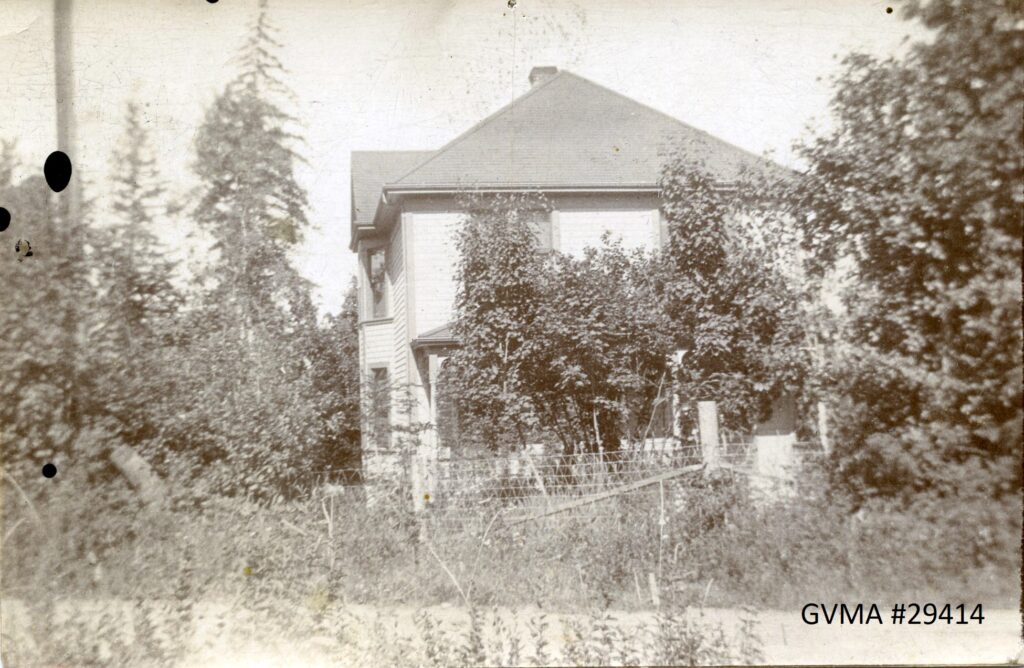For the summer months, we are thrilled to present a series of blog posts by Collections Intern Rebeka Beganova. Rebeka (she/her) is a post-secondary student with a passion for research, literature, and history. Having completed an Associate of Arts Degree at Okanagan College, she is glad to be joining the MAV team during her last summer in Vernon before heading off to UBC Vancouver. There is no better way to say goodbye to her hometown than to explore its local history!

Amid Vernon’s social and technological advancements of the 1890s, many minds turned to the future generations already planting roots in the city. Would they have what they needed to live full, prosperous lives? What would entice them to move in and stay in? It became apparent that for the city to fulfill its potential as an Okanagan hub, local education begged improvement – specifically, it required the development of a solid post-secondary institution. In 1892, Frederick A. Meyer stepped up to the challenge and founded Vernon Private College.
Right idea, rIGHT tIME (MAYBE)
Multiple factors led Meyer to believe Vernon College would thrive. He saw the area’s mild climate and growing community as components of an inevitable “education centre,” or scholarly hotspot. Advertisements for the school were ambitiously welcoming (and in hindsight, unflinchingly sexist) and stated that “the college is intended for young men desirous to study for any of the professions or public examinations.” Subjects such as book-keeping, painting, and science were points of pride, and those of mathematics, foreign languages, and drawing were also promoted.
As both founder and principal, Meyer ran the establishment with seemingly little help, at least by today’s standards. Additionally, the staff’s teaching credentials were suspiciously undermentioned, as in the following quote from a newspaper article: “Should anyone wish to take up any special class of work not mentioned, Mr. Meyer or one of his assistants will be only too pleased to instruct them.” The sky, apparently, was the limit. Nonetheless, Vernon College seemed set up for success. The first term began on Jan. 8, 1893, with options to board (and take advantage of Mrs. Meyer’s cooking), attend night classes, or book private lessons. Over the next few years, the school even set up its own student awards, including a Warden’s prize for classics: Latin and Greek.
a qUALIFIED lEADER
Meyer’s background was never much discussed in the school’s advertisements. Publicly, his teaching credentials were as elusive as the rest of the staff’s; however, his life experiences actually made him one of the most qualified people for the job. Meyer was originally from England, and while young he began working for the shipping trade between his home country and China. Later, he settled in Japan, where he spent twenty years as the headmaster of the Japanese Royal Naval College. His work earned him the Order of the Rising Sun from the Emperor, an award that required the Queen’s permission to be bestowed upon a British subject.
Like a pair of dedicated soulmates, Meyer and Vernon College met their end within years of each other. The college building was soon transformed into the Cochrane House, and by 1906, it was up for sale. Meyer died from apoplexy on Sept. 1, 1908, after falling into a coma – right at the beginning of the school year. It is unclear why Vernon College lasted so few years. Perhaps it simply changed form and moved elsewhere. From the records of its existence, though, it seemed a brilliant flame that simply burned a little too bright.
To explore more of Vernon’s history, check out our other blog posts!
Rebeka Beganova, Collections Intern

